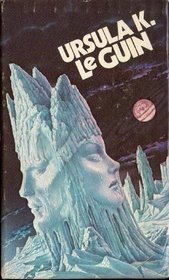Something I love about Ursula Le Guin’s Hainish Cycle (Dispossessed, Left Hand of Darkness, Word for World is Forest):
It tells us about a universe where we don’t go out to colonize the vast unknown but where we go out and find each other.
It tells us about a universe where we don’t go out to colonize the vast unknown but where we go out and find each other.
She turns much of science fiction on its head, flipping the script of a colonial fantasy that replays the doctrine of Terra Nullius, again and again, into a tale of what it is like to meet the other, who is like the self, out there, in space.
Hers is a cosmopolitanism that archeologists are only now uncovering back on Earth:
That we did not colonize the world as a single species but likely lived amongst many of our selves, who were us but also not us, built relationships with them/us, and transformed each other.
That we did not colonize the world as a single species but likely lived amongst many of our selves, who were us but also not us, built relationships with them/us, and transformed each other.
By the way, Ridley Scott’s Alien series plays the same trick but in a more sinister way: in Alien (Covenant), we finally find out that the aliens (spoiler) are in fact made by an android, who is made by ourselves. The alien out there is actually more like us than we can imagine.
Ursula Le Guin teaches us to think of our relationships with each other, not as discovering the unknown, but as discovering the self.
And her science fiction does not imagine change coming from a break with the past (the journey to an unknown land) but through allowing the self to be transformed by the other, through reconciliation with the past and how it continues in the present.
She shows us what decolonial science fiction could look like.

 Read on Twitter
Read on Twitter


